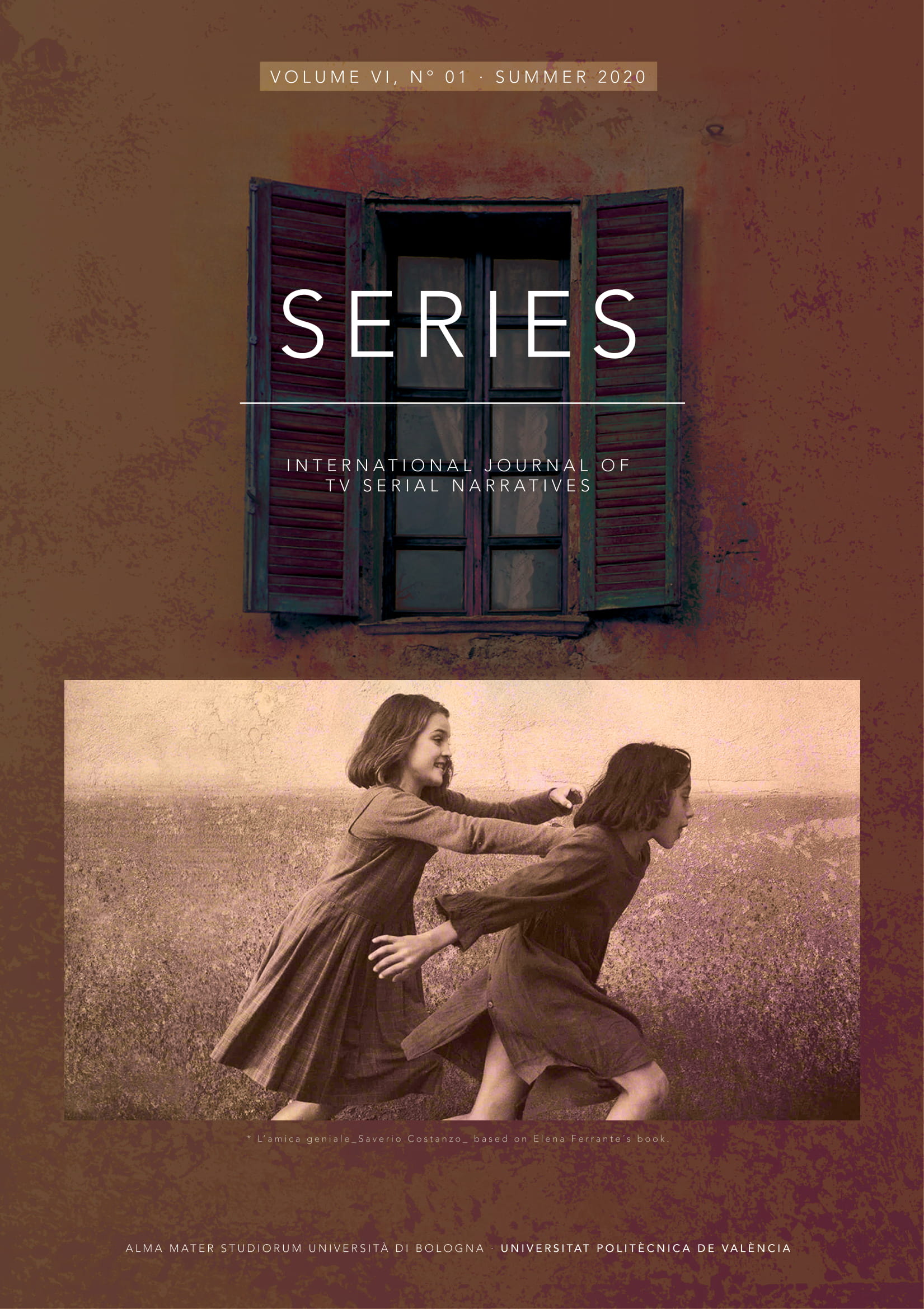The Ethics of Serial Narrative Structures
DOI:
https://doi.org/10.6092/issn.2421-454X/10393Keywords:
episodic, serial, ethics, E.R., Angel, Awake, Lost, Person of interestAbstract
The power of episodic television shows such as Columbo (NBC, 1968-1978; ABC, 1988-2003) in which each episode tells a full story, has been highlighted by Jean-Pierre Esquenazi (2017: 107-28), who compares them to cubist works, whose universes become denser over time. Yet, surveys evidence that audiences generally prefer watching serial television shows whose narrative arcs develop over numerous episodes (Glevarec 2012; Combes 2015). Series such as E.R. (NBC, 1994-2009), Angel (The WB, 1999-2004), LOST (ABC, 2004-2010), Person of Interest (CBS, 2011-2016) and Awake (NBC, 2012), which are the focus of this essay, negotiate a “balance between episodic and serial demands” (Mittell 2015: 20), as they include episodes that both stand on their own and advance various long-term narrative arcs. These semi-serial shows display a writing which, season after season, feeds on the very tension between their episodic and serial aspects, between short-term and long-term features. This tension raises ethical stakes, particularly an ethics of care, which this essay will attempt to bring to the fore, drawing from the work of Sandra Laugier (2014: 261). Laugier’s work invites us to understand how television shows, through their durations and the various kinds of attachment they elicit, may educate viewers morally and make them attentive to what seems to be unremarkable within ordinary life. Her recent work on TV series (2019) focuses on their representational contents – situations, dialogues, gestures, dilemmas, identity politics and (political or moral) choices made by (groups of) characters – but it does not take into account the way specific narrative structures may encourage spectators to adopt a particular ethical view. The purpose of this essay is precisely to focus on the ethics of care invoked through serial narrative structures. By analyzing several examples, we will show that semi-serial shows thematize their own narrative negotiations within the story world and, even if they construct strong serial arcs, maintain the importance of the episodic form as a metaphor of human beings in their very individualities and specificities.
References
Esquenazi, Jean-Pierre (2017). Éléments pour l’analyse des séries. Paris: L’Harmattan.
Glevarec, Hervé (2012). La Sériephilie : Sociologie d’un attachement culturel. Paris: Ellipses.
Combes, Clément (2015). “Du ‘rendez-vous télé’ au binge watching : typologie des pratiques de visionnage à l’ère du numérique.” Études de communication 44. https://doi.org/10.4000/edc.6294.
Cornillon, Claire (2017). “Opening credits” Episodique. https://episodique.hypotheses.org/158.
Favard, Florent (2018). Ecrire une série tv: La promesse du dénouement. Tours: Presses universitaires François Rabelais.
Hatchuel, Sarah (2013). Lost: fiction vitale. Paris: Presses Universitaires de France.
Laugier, Sandra (2014). “L’éthique comme attention à ce qui compte.” In Yves Citton (ed.), L’économie de l’attention. Paris: La Découverte.
Laugier, Sandra (2019). Nos vies en séries. Paris: Climats.
Mittell, Jason (2015). Complex TV: The Poetics of Contemporary Television Storytelling. New York and London: New York University Press.
Downloads
Published
How to Cite
Issue
Section
License
Copyright (c) 2020 Sarah Hatchuel, Claire Cornillon
Copyrights and publishing rights of all the texts on this journal belong to the respective authors without restrictions.
This journal is licensed under a Creative Commons Attribution 4.0 International License (full legal code).
See also our Open Access Policy.





